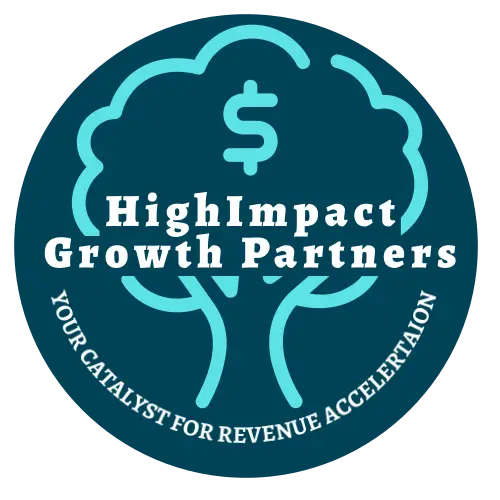Assess Your Marketing & Customer Engagement Strategies
In a Nutshell:
- Evaluate Current Marketing Channels: Analyze the effectiveness of your marketing channels through metrics such as click-through rates and conversion rates to align with business goals.
- Analyze Customer Feedback and Data: Continuously collect and analyze customer feedback to inform marketing tactics and improve engagement.
- Identify Key Performance Indicators (KPIs): Establish quantifiable metrics that align with objectives to track the success of marketing initiatives and customer engagement.
- Test and Experiment with New Strategies: Regularly test new strategies to see what resonates best with your target audience, driving brand loyalty and customer satisfaction.
- Personalize Customer Interactions: Tailor marketing communications to individual customers using data insights to enhance their experience and build lasting relationships.
Having a solid marketing and customer engagement strategy is crucial for the success of any business. To stay ahead of the curve and keep your customers engaged, it is essential to regularly assess and evaluate your current strategies. This article will delve into the importance of assessing your marketing tactics and customer engagement methods, as well as provide insightful tips on how to tweak them for optimal results. So grab a cup of coffee, sit back, and let’s explore ways to elevate your business game!
Evaluating Your Current Marketing Channels
In order to determine the effectiveness of your marketing channels, it is important to first identify and analyze each channel you are using. This includes social media platforms, email campaigns, website traffic, and any other methods you are utilizing to reach your target audience. By collecting data on these channels, such as click-through rates, conversion rates, and engagement metrics, you can gain valuable insights into which channels are performing well and which ones may need improvement.
Once you have collected data on your marketing channels, it is crucial to evaluate this information in relation to your overall business goals. Consider whether certain channels are driving the desired results and meeting your objectives. Are they helping you acquire new customers or retain existing ones? Are they effectively increasing brand awareness or driving sales? By aligning your marketing efforts with your business goals, you can better assess which strategies are working best for achieving success in today’s competitive marketplace.
After assessing the performance of each marketing channel against your business goals, take proactive steps to make necessary adjustments based on these evaluations. This could involve reallocating resources towards high-performing channels or experimenting with new tactics altogether. Continuously monitoring and evaluating ̧your marketing efforts will allow you to stay agile in response to changing market trends and customer preferences, ensuring that at all times you remain ahead of the game.
Analyzing Customer Feedback and Data
Analyzing customer feedback and data is a critical component of assessing your marketing and customer engagement strategies. By collecting and analyzing feedback from customers, whether through surveys, social media interactions, or customer reviews, businesses can gain valuable insight into the effectiveness of their current tactics. Data analysis allows businesses to identify trends, patterns, and areas for improvement in their marketing efforts.
Customer feedback can also provide businesses with opportunities to tailor their products or services to better meet the needs and preferences of their target audience. Additionally, by closely monitoring key performance indicators (KPIs) such as website traffic, conversion rates, and customer retention rates using data analytics tools like Google Analytics or CRM software, businesses can track the success of their marketing campaigns over time. This information serves as a roadmap for making informed decisions on how to refine existing strategies for maximum impact.
In conclusion,
regularly analyzing customer feedback and data is essential for staying competitive in today’s fast-paced business environment. By continuously fine-tuning your marketing tactics based on these insights,
you can ensure that you are effectively engaging with your customers and meeting their needs while driving long-term success for your business. So take the time to listen to what your customers have to say,
and let it guide you towards implementing more effective strategies that will elevate your business game!
Identifying Key Performance Indicators (KPIs)
Identifying Key Performance Indicators (KPIs) is a critical component of assessing your marketing and customer engagement strategies. KPIs are quantifiable metrics that help you track the success of your initiatives and measure progress towards your goals. By identifying the key metrics that align with your objectives, you can gain valuable insights into what is working well and where improvements need to be made.
When it comes to assessing your marketing tactics, some common KPIs include website traffic, conversion rates, social media engagement, and email open rates. These indicators can help you understand how effectively you are reaching and engaging with your target audience. In terms of customer engagement, KPIs such as customer satisfaction scores, retention rates, and Net Promoter Score (NPS) can provide valuable insights into the overall health of your relationships with customers.
By regularly monitoring these KPIs and analyzing the data they provide, you can make informed decisions about where to allocate resources for maximum impact. Whether it involves tweaking your content strategy based on website analytics or improving customer service practices based on feedback surveys, leveraging KPIs is essential for staying competitive in today’s fast-paced marketplace. So take the time to assess your current strategies and identify key performance indicators that will drive meaningful results for your business!
Testing and Experimenting with New Strategies
Testing and experimenting with new strategies is a vital component of staying ahead in the fast-paced and competitive business landscape. By continually assessing your marketing tactics and customer engagement methods, you can identify areas for improvement and opportunities for growth. Trying out different strategies allows you to see what works best for your target audience, ultimately leading to increased brand awareness, customer loyalty, and sales.
One key benefit of testing new strategies is the ability to track results in real-time and make data-driven decisions based on performance metrics. This not only helps to optimize your current tactics but also provides valuable insights that can shape future marketing campaigns. Whether it’s A/B testing email subject lines or experimenting with social media ad creatives, taking a proactive approach to testing new strategies will help your business stay agile and responsive in today’s ever-evolving marketplace.
In conclusion, regularly evaluating and tweaking your marketing tactics is essential for keeping up with changing consumer preferences and market trends. Embracing experimentation allows businesses to adapt quickly to shifts in the industry landscape while continuously finding innovative ways to engage their customers. So don’t be afraid to test out new ideas – who knows, they might just be the game-changer your business needs!
Leveraging Social Media for Customer Engagement
In the age of social media, leveraging platforms such as Facebook, Instagram, and Twitter has become essential for businesses looking to boost customer engagement. These channels offer a direct line of communication with your audience and provide opportunities to create meaningful interactions that can drive loyalty and sales. By posting engaging content, responding promptly to comments and messages, and running targeted advertising campaigns, you can effectively reach your target market and keep them interested in what you have to offer.
Regularly assessing the performance of your social media marketing efforts is key to ensuring that they are delivering results. Monitoring metrics such as engagement rates, click-through rates, and conversion rates can help you understand what is working well and where there may be room for improvement. By analyzing this data on a regular basis, you can make informed decisions about which tactics are most effective for engaging customers on social media platforms.
Additionally, don’t be afraid to experiment with different types of content or engagement strategies to see what resonates best with your audience. Whether it’s hosting live Q&A sessions on Instagram or running contests on Facebook, trying out new approaches can help keep your followers excited about interacting with your brand online. Remember that building relationships through social media takes time and consistent effort – but the payoff in increased customer loyalty and satisfaction is well worth it in the end.
Personalizing Customer Interactions
Personalizing customer interactions is a key element in today’s marketing and customer engagement strategies. By tailoring your communication and approach to each individual customer, you can create a more personalized and engaging experience that resonates with them on a deeper level. This not only strengthens the bond between your brand and your customers but also increases loyalty and encourages repeat business.
Assessing your current methods of marketing and customer engagement is crucial to ensuring that you are effectively personalizing customer interactions. By analyzing data, feedback, and trends, you can identify areas where improvements can be made to enhance the overall customer experience. Whether it’s through targeted email campaigns, personalized product recommendations, or customized social media content, taking the time to evaluate your strategies will help you refine them for maximum impact.
In conclusion, by regularly assessing and fine-tuning how you market to customers and engage with them, you can elevate your business game and stand out from competitors in today’s crowded marketplace. Personalizing customer interactions not only enhances the overall experience for your customers but also drives positive results for your bottom line. So why wait? Begin evaluating your strategies today to see how you can improve upon them for even better outcomes tomorrow.
Implementing Automation Tools for Efficiency
Implementing automation tools for efficiency in your marketing and customer engagement strategies can lead to significant time and cost savings while also improving the effectiveness of your campaigns. By automating repetitive tasks such as email marketing, social media posting, and customer relationship management, you free up valuable resources that can be better utilized on more strategic activities. Automation tools can also help you better track and analyze data, allowing you to make data-driven decisions that drive results.
With the right automation tools in place, businesses can streamline their processes, improve communication with customers, and personalize interactions based on individual preferences. This level of personalization not only enhances the customer experience but also increases brand loyalty and retention rates. Additionally, automation tools allow for greater scalability, enabling businesses to efficiently handle a growing number of customers without sacrificing quality or consistency in their marketing efforts.
In conclusion, implementing automation tools for efficiency is essential for staying competitive in today’s fast-paced marketplace. By regularly assessing your marketing tactics and customer engagement methods and utilizing automation tools to streamline processes, businesses can achieve optimal results while maximizing resources. So why wait? Start exploring automation solutions today and see how they can elevate your business game to new heights!




